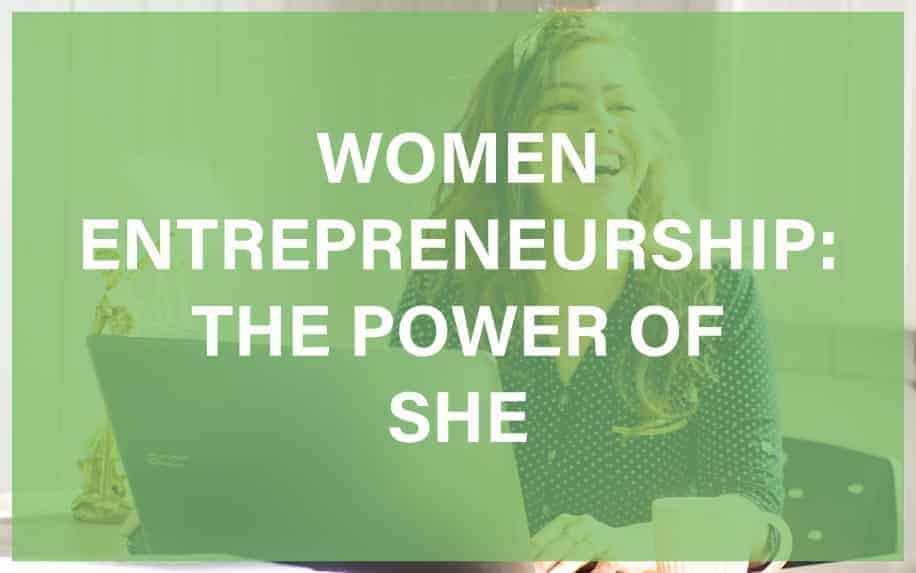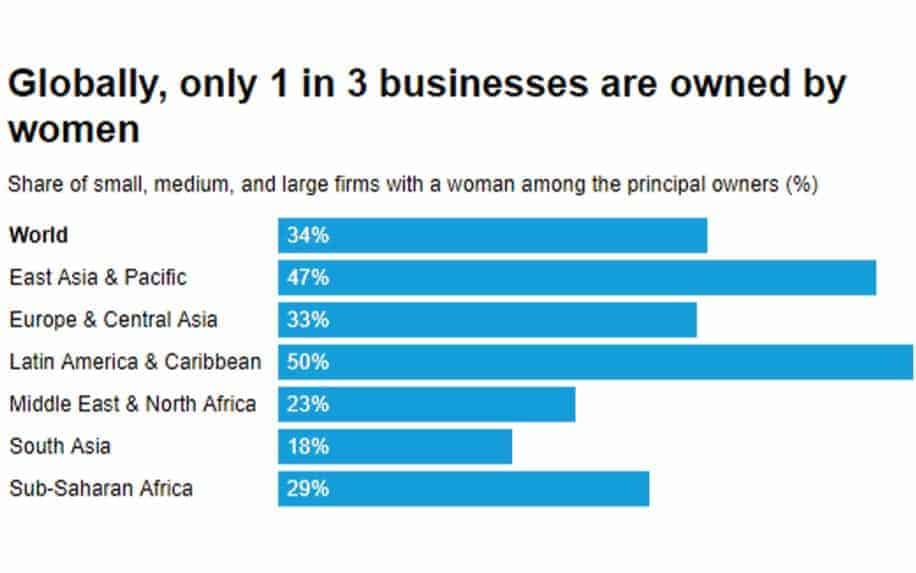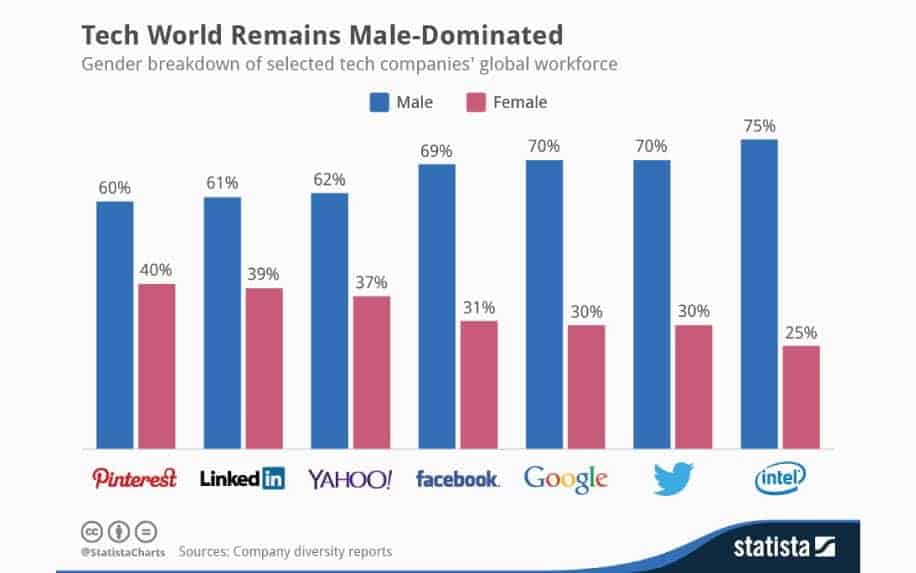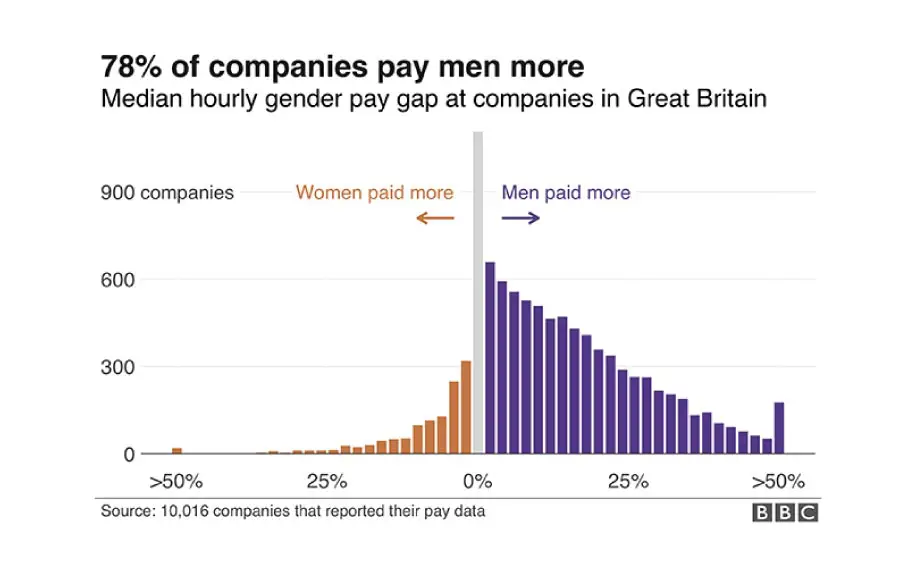Women have struggled with rigid social restrictions and fought for equal rights for decades. With the Industrial Revolution came the shift from farming to manufacturing and labour. For some time, taking part in these jobs was exclusive to men.
Women entrepreneurs still feel these effects.
Bit by bit that has changed thanks to the effort of many inspiring women who believed in empowering women. Lately, businesswomen have been conquering the entrepreneurship world and achieving high scores.
Women entrepreneurship has been proving itself successful and accomplishing more than men in many cases. Some stories are truly inspiring in the way those women have overcome difficulties.
This article shall shed light on some of these inspiring stories so that we may understand the challenges facing women’s entrepreneurship and why some women are still insecure about succeeding in business.

Table of Contents
History and Background of Women Entrepreneurship
For many years, gender roles have assigned a “domestic” role for women, while men were expected to support their families financially.
During the twentieth century, the world witnessed revolutionary changes in the status of women in business. Women started to defy the patriarchal culture, which limited their educational and professional progress and, therefore, hindered them from competing with men.
In 2012, 126 million women entrepreneurs were starting or running new businesses in 67 economies.” This number may look small when compared to the number of male entrepreneurs.
However, it represents a huge leap compared to how the market looked like seventy years ago. According to the Catalyst, women represent about forty-six percent of the workforce.
Today, women are present in every field, assuming managerial positions and receiving the highest degrees from the fanciest universities.

What Are the Challenges Facing Women Entrepreneurship?
While celebrating how far women have come, we should not forget that there are many more challenges facing female entrepreneurs than those facing their male counterparts.
Women entrepreneurs face unique challenges, including:
- Access to funding – Women founders received only 2.3% of VC funding in 2020. [Source]
- Discrimination – 42% of women in one survey reported experiencing gender discrimination. [Source]
- Credibility – Women are often not taken as seriously and must prove competence more.
- Work/life balance – Managing business obligations and family responsibilities is difficult.
- Lack of networks – Many networks are still male-dominated, making access and mentors hard.
- Confidence – Imposter syndrome and lack of self-assurance impact many women entrepreneurs.
While progress has been made, data shows systemic biases and barriers remain. Support groups and business education can help women overcome these challenges.
Unfortunately, many women feel intimidated to start a business for several reasons.
Fear of Failure
Fear of failure is associated with other common concepts and myths:
- Stereotypes,
- Male-dominated industries,
- And the gender pay gap.
Fear of failure is also tied to other social and economic issues that would-be female entrepreneurs face. For example, women do an overwhelming share of domestic and caring work.
This can make the fear of failure more acute, as women often have higher stakes.
Let’s look at some issues that can create a fear of failure around female entrepreneurship.
Stereotypes and Social Roles
There are still stereotypes that insist that women are less successful entrepreneurs than men. When asked about their business ability, women usually show less self-confidence. “
A third of the female population would start a business if it weren’t for the fear of failure.
It is surprising that despite the great success women entrepreneurs achieve, most people have an inner belief that entrepreneurship is too risky and involves more responsibilities than a woman can handle.
Women may internalise these attitudes, causing them not to chase their dreams. Alternatively, they might start out on their entrepreneurship journey only to be discouraged by friends and family.
Childcare and maternity leave also contribute to such stereotypes. Many still believe, especially in developing countries, that a woman’s “natural” place is at home caring for children.
Male-Dominated Industries
There are many fields where women struggle to find a chance due to misconceptions about that field being too “complicated” or including a lot of “manly work.”
Only 15% of engineering and technology undergraduates are females. Therefore, it is way more challenging for a female to find a job or start a business in such fields, as many employers have a subconscious bias towards hiring men.
In many cases, women entrepreneurs are expected to have a “feminine” nature, forcing them to work in fields that society deems suitable.

Gender Pay Gap
Women are still paid less than men in the UK. Among the top 10% of earners, the majority are men. This gap is discouraging to many women. It also affects their choices when deciding on a niche for their business.
The gender pay gap is complex and multi-faceted. That is, there is no single cause. Society’s expectations, social conditioning and unconscious bias play just as much of a role as outright discrimination.
One of the best ways to combat this is to highlight high-profile examples of women entrepreneurs.

Successful Women Entrepreneurs:
Well-known women entrepreneurs who can inspire include:
- Melinda Gates (Philanthropist, Gates Foundation)
- Oprah Winfrey (Media Mogul, Harpo Productions)
- Arianna Huffington (Founder, HuffPost and Thrive Global)
- Tory Burch (Fashion Designer, Tory Burch LLC)
- Whitney Wolfe Herd (Founder, Bumble and Badoo)
Examples of Women’s Entrepreneurship
Even though female entrepreneurs face numerous challenges, many examples of successful businesswomen are household names.
Here are some of the most high-profile examples of women entrepreneurship.
Coco Chanel
Chanel is, hands down, the most popular and influential clothes designer in the history of the fashion industry. She was all that a woman entrepreneur should be. Daring, innovative, and bold.
Chanel started her business during World War I. She had a unique vision for fashion, which suited the modern woman. She was bold enough to free women from tight corsets and annoying clutches.
She developed new concepts and introduced the notion of a comfortable style, which has revolutionised women’s wardrobes ever since.
Sarah Burton
Burton works for the famous clothing brand Alexander McQueen. She climbed up the ladder until she became the creative director of the entire brand.
In 2011, Burton’s name shined brightly as the designer of the royal wedding dress for Kate Middleton. Burton was on Time magazine’s list of the 100 most influential people 2012. She currently leads the fancy brand with stability and elegance.
Oprah Winfrey
The well-known media queen. Despite Winfrey’s tough upbringing, she has turned her life upside down, becoming one of the most successful women ever. She has faced several difficulties due to being an African-American woman.
Oprah has interviewed the greatest icons of music, films, sports, you name it. She is now the supervising producer and host for The Oprah Winfrey Show. In addition, Winfrey has established her magazine and her website.
She is one of the most influential women entrepreneurs, reaching almost 50 million viewers weekly through TV alone.
Sara Blakely
Founder of Spanx shapewear. The first female self-made billionaire. Paved the way for inventive female founders.
Tiffany Masterson
Founder of Drunk Elephant skincare. Bootstrapped company to acquisition by Shiseido. Strong vision and brand-building.
Melinda Gates
Philanthropist who co-founded the Gates Foundation. Invests in women’s health and development globally. Compassionate leadership.
Michelle Phan
YouTube star turned IPSY monthly beauty subscription founder: digital content pioneer and savvy marketer.
Whitney Wolfe Herd
Founder of popular dating apps Bumble and Badoo. It empowers women in tech and promotes kindness in connections.
Jenn Hyman
Co-founder of Rent the Runway clothing rental platform. Disrupted the fashion industry and embraced risk-taking.
By highlighting diverse women entrepreneurs, young founders can find inspiration through shared experiences and strategies for overcoming challenges. Role models provide proof that women can thrive in business.
Examples of Women Entrepreneurship in Male-Dominated Industries
Of course, many of these household names succeeded in industries normally associated with women. But what about female entrepreneurs in fields traditionally viewed as men’s work?
Let’s look at some women who are bucking the trend and making themselves successful in male-dominated industries.
Cher Wang
The tech industry is known for being male-dominated. However, this rule does not seem to apply to Wang at all. Cher Wang is the co-founder and chairperson of HTC. She is considered one of the wealthiest people in Taiwan, with a net worth of 850 million dollars.
HTC has gained a reputation for being the official manufacturer of handheld devices for all top mobile phone brands. Wang did not stop there.
She teamed up with leading mobile carriers and used her company’s technical expertise. Soon after, HTC became one of the top-selling mobile phone brands and competed with established names.
Rashmi Sinha
Rashmi Sinha is an Indian-American businesswoman who created an online presentation tool called SlideShare. SlideShare is very popular among a lot of small businesses and start-ups.
Combining an experience of two completely different fields, neuropsychology and computer science, she became an unstoppable woman. In 2012, Sinha was number eight on Fortune’s list of the most powerful women entrepreneurs.
List of conferences, Networks, Accelerators, and Events for Women Founders
Conferences:
- Create and cultivate conferences in multiple cities for women looking to create and cultivate a business.
- Boss Women Media Conference – an annual conference focused on empowering female entrepreneurs.
- BlogHer Creative summits – conferences focused on marketing skills for female content creators.
Networks:
- Lean In Circles – small peer groups that meet regularly to provide community and support.
- Chief – private network focused on connecting and supporting women executives.
- Ellevate Network – global professional women’s network for mentoring and development.
Accelerators:
- Springboard Enterprises – an accelerator that helps women-led businesses access capital, networks, and expertise.
- MergeLane – seed fund and accelerator program specifically for women-led tech startups.
Events:
- Make Your Pitch competitions – local competitions for women business owners to pitch their ideas.
- Women of Silicon Roundtable – events bringing together women founders, investors, and executives.
- International Women’s Entrepreneurial Challenge – a global business competition hosted annually by IFE.
Tips from Successful Female Entrepreneurs on Securing Funding as a Woman:
- Build an advisory board of mentors who can help guide your pitch and introductions to investors. Lean on your network.
- Perfect your pitch deck and get feedback from objective colleagues. Quantify your traction and market opportunity.
- Seek out women-led angel groups and funds focused on investing in female founders.
- Highlight your expertise and unique insight into solving a problem women consumers face.
- Showcase your product or service with demos and prototypes to make the business concept tangible.
- Be confident in your worth, and don’t accept unfavourable terms or valuations due to gender bias.
- Leverage crowdfunding platforms and networking events to get visibility. Success builds credibility.
- Be persistent, and don’t get discouraged by rejections. It often takes many investor meetings to secure funding.
- Learn from successful women entrepreneurs who have raised venture capital and overcome similar barriers.
Securing business funding as a female founder takes determination and savvy, but taking the right strategic steps can help unlock access to capital.
Tips on Balancing Business and Family Obligations, with Quotes from Mom Entrepreneurs:
- “Having a schedule is crucial. Block out specific family time and stick to it.” – Tara Gentile, Founder of Quiet Power Strategy
- “I work when my kids are at school. Staying focused helps me maximize that time.” – Carrie Smith, Creator of Mommy Cast.
- “Ask your partner, family or friends for help. I couldn’t do this without my husband’s support.” – Jen Gottlieb, Founder of Superfit Hero.
- “Remember, your children won’t be this young forever. Soak up the special moments and don’t feel guilty about prioritizing family.” – Jessica Herrin, Founder of Stella & Dot.
- “Outsource and delegate tasks when you can. Making meals efficient helps free up time.” – Carolanne Bond, Founder of Bestowed Boxes.
- “Telecommute when possible to integrate work and be more available.” – Miranda Kerr, Founder of Kora Organics.
- “Schedule daily check-ins with staff and use project management tools to stay connected.” – Hillary Weiss, Founder of LetsGlam
The key is prioritizing quality time with your family, having strong time management, delegating, outsourcing, and embracing flexibility when running your business as a mom. Support networks also help deal with the demands.
Women Entrepreneurship FAQ questions and answers for:
Q: What are some challenges unique to women entrepreneurs?
Common challenges women entrepreneurs face include access to funding, discrimination and bias, credibility issues, work/life balance, lack of networks, and confidence struggles.
Q: Who are some role models for women in business?
Notable women entrepreneurs like Sara Blakely, Tiffany Masterson, Melinda Gates, and Michelle Phan inspire their success stories.
Q: What resources exist for women founders?
Helpful resources include women-focused conferences, networks, accelerators, events, and online communities providing connections and support.
Q: How can women secure funding for a business?
Strategies like perfecting your pitch, leveraging connections, highlighting market expertise, building traction and credibility, and persistence help women secure funding.
Q: How do you balance business ownership and family?
Tips for balancing business and family include prioritizing quality family time, having a schedule, delegating tasks, outsourcing, embracing flexibility, and utilizing support systems.
Women Entrepreneurship Summary
The list of women entrepreneurship goes on and on. Every success story has something that we can learn from. Women entrepreneurs may have qualities in common, such as determination, intelligence, and ambition.
However, each has a unique entrepreneurship idea that distinguishes her business from another’s, even if they have the same niche. Nowadays, more women are interested in entrepreneurship, and the choices are endless.
Choose an entrepreneurship idea which suits your financial resources, personal preferences, and abilities. Choosing a niche or an idea also requires some market research to understand the needs of your surrounding market better.
In conclusion, women are starting businesses in record numbers but still face unique obstacles like access to funding, discrimination, and work-life balance challenges. However, resources exist to support women entrepreneurs through conferences, networks, events, and online communities tailored to women. Role models like Sara Blakely and Melinda Gates inspire their success stories.
Female founders can secure financing and thrive by perfecting pitches, quantifying business potential, seeking women-led funding sources, and embracing flexibility. While hard work is required, the future is bright for women in business as outdated gender barriers get challenged. Women’s unique experiences provide valuable insight into underserved markets and problems facing other women. With quality support and perseverance, women entrepreneurs will continue disrupting industries and changing the face of business leadership.
Read more about how to run a business, develop yourself and improve your skills. Finally, do not be afraid to take some risks or try something new; experimentation is part of the journey.


